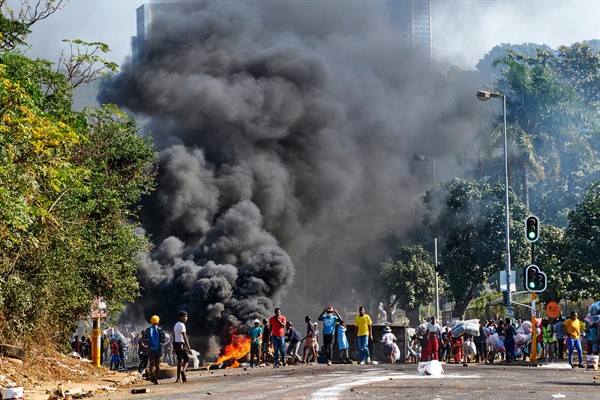South Africa is in flames over its graft-plagued former president. After the 79-year-old Jacob Zuma turned himself in to authorities to begin a 15-month prison sentence for contempt of court on July 8, violent protests and riots erupted in parts of the country, and at least 72 people have been killed in the unrest so far. Earlier this week, President Cyril Ramaphosa deployed the military to the worst-hit parts of the country.
Underneath the riots and looting, Zuma’s prison sentence—which the Constitutional Court handed down in late June after he refused to testify before the official commission of inquiry charged with probing the corruption that blighted his decade-long presidency—captured the best and worst aspects of post-apartheid South Africa. It reaffirmed a core principle of democratic government: No one, whatever their past or present station, is above the law.
By contrast, it is concerning that, in responding to the judgment, a former president would attack the courts and display such disdain for the rule of law and the constitution, even going so far as to tell his supporters that he is a “prisoner of conscience” and comparing his legal woes to the anti-apartheid struggle that he helped to lead. His arrest has also exposed a fundamental division in the ruling African National Congress party, or ANC: between its reformist modernizers under Ramaphosa, and a more reactionary camp gathered around Zuma and the party’s former secretary-general, Ace Magashule, who was recently suspended due to corruption allegations.

